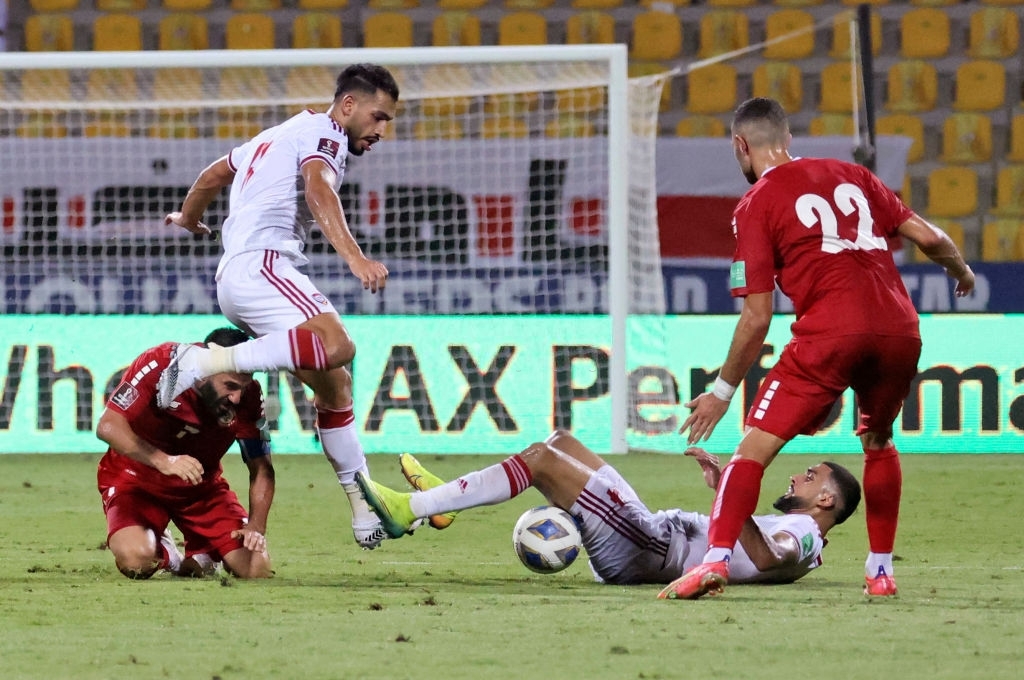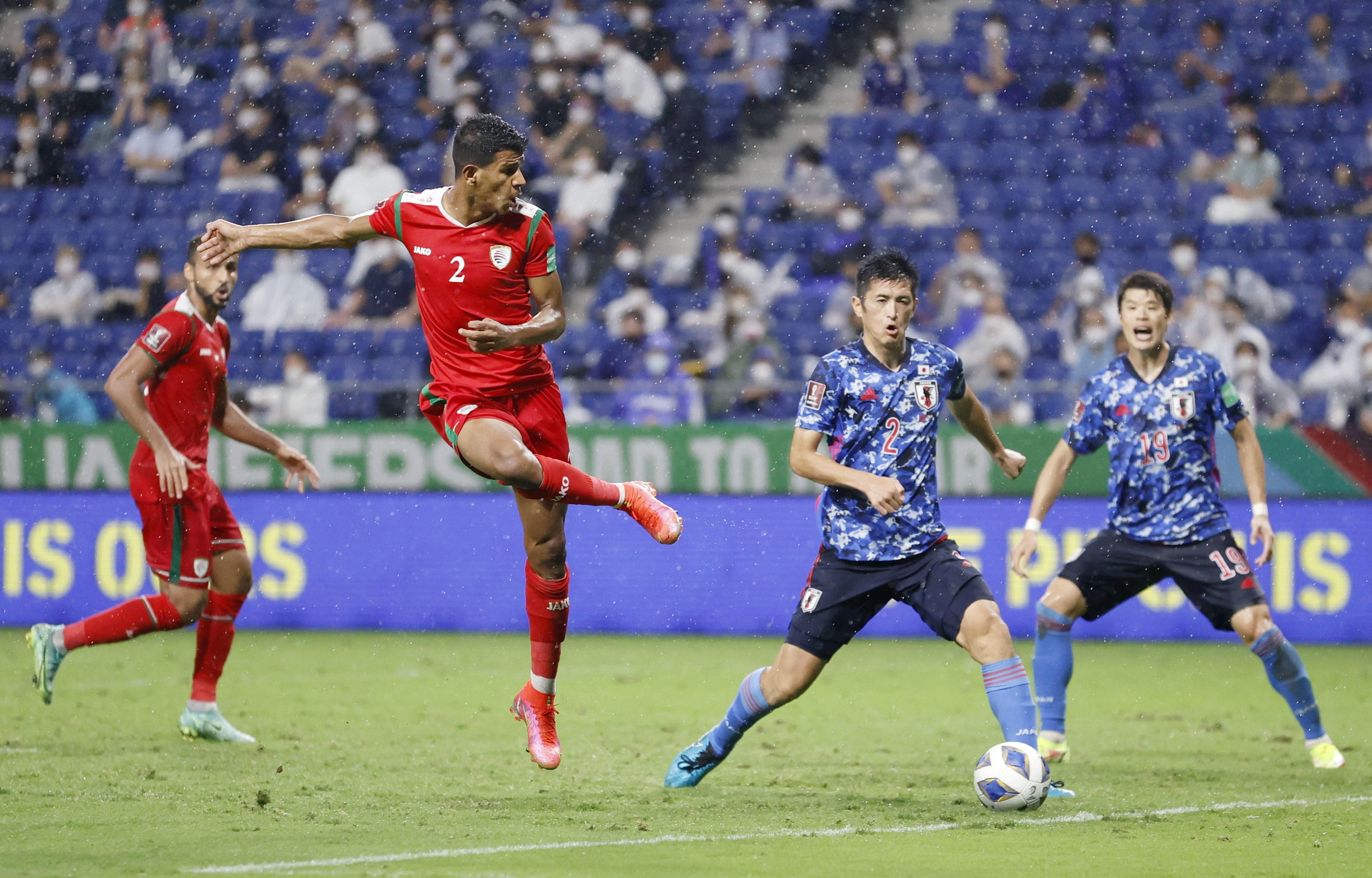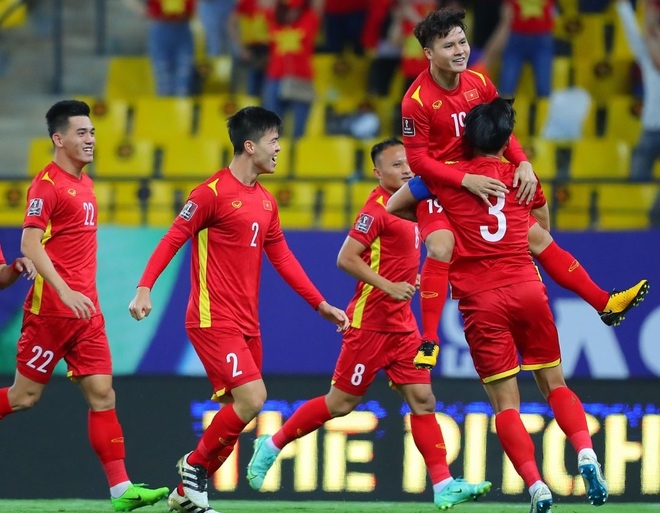A review of the 2022 FIFA World Cup qualification in Asia - Matchday 1 and 2
The 2022 FIFA World Cup qualification in Asia has just gone over two first matchdays, but there had been so many things left behind. The run is still long, but there has already been the smell of a really competitive qualification. I may have the chance to recollect memories of the qualifiers as long as I could, for the best.
China, UAE and Iraq in total crisis
The three major teams in this third phase are China, the UAE and Iraq. Yet after the two first matchdays, anything left behind them is nothing but a complete dismal performance.
The UAE has to be the most to get criticism. The Emiratis were drawn against the likes of Lebanon and Syria on their two first fixtures, no better opportunity to collect six out of six. Yet the UAE responded poorly with two straight draws to Lebanon 0-0 and Syria 1-1. Worse, the UAE has failed to produce a decent performance in style, struggling to find the net with Ali Mabkhout, the country's most talented striker currently, being the only difference in the UAE's two disappointing draws. It's a stun when the UAE itself has a number of naturalised players from Brazil and Argentina, but nothing bore fruits. This kind of performance can put the UAE in severe danger when October's opponents will be Iran and Iraq.
Yet the UAE is surely happier than fellow group rival Iraq with two points collected. Iraq has demonstrated a great performance against South Korea with a goalless draw, successfully blocking Tottenham's Son Heung-min. However, Iraq has shown why it has only qualified for one World Cup: the game against Iran, which was played in Doha due to security reasons regarding recent unrest, ended up seeing Iraq totally trashed 0-3, a stark contrast from Iraq 2-1 win in the second phase. This woeful performance put Iraq's quest for Qatar in a dire situation. Still, Iraq's October opponents, Lebanon and the UAE have proven to be not so great, and the Iraqis will need to rally back.
China has to be the most disappointing if you judge by score, in spite of the large sum of the budget being thrown to develop the national team as initiated by President Xi Jinping, himself a fan of football. After successfully overcome Syria, China was thought to provide troubles for top teams like Australia and Japan - instead, China was scrapped 0-3 and 0-1, with its players more exhausted in keeping the net rather than providing formidable attacks; like the UAE, China also naturalised a number of players from Brazil and England. Li Tie is allowed to remain in charge, but if China fails to Vietnam and Saudi Arabia in October, his tenure will be certainly ended in short, as China has no point and no goal. Let's not forget during the game against Japan, Arsenal's manager Arsène Wenger was in the VIP seat in Doha among the Chinese officials, leading to speculation that the Frenchman going to take the realm of the Team Dragons.
Oman's emergence
Oman in group B has emerged as a tough test for anyone in this phase. And it does have a reason: Oman performed wonderfully against two giants Japan and Saudi Arabia, inflicting a shock away win against the former on matchday 1. Oman has currently sat in third place, above the Japanese side due to head-to-head point earned from Oman's win in Suita.
Oman is not a strong team in Asia, but it has demonstrated the rising feat of football success. Oman has taken part in this phase just only a third time, but the Omani team is nevertheless becoming more and more capable as time goes on. The win against a poorly organised Japan in Suita had been the reason for widespread rupture against Hajime Moriyasu and criticism pointing to the Japanese squad, far more reaching if not to say damaging than Japan's shock opening home defeat to the UAE back in the latest qualification. Reason? Oman has never been to a World Cup nor even beating Japan before this game, while the UAE at least played in Italy 1990 and did beat Japan on Japanese soil.
Oman's upcoming games will be against Australia and Vietnam, and Oman promised to be very threatening when it has the chance. Australia will have to be careful: the Aussies have almost been beaten by the same opponent back in the 2014 qualification.
East Asian giants failing to gain a good start
Japan and South Korea had shockingly shown really poor performances after the first matchdays, though South Korea is a bit better.
South Korea in group A was taken to the ground with a blowing home draw to Iraq, before regained strength, winning a hard-fought 1-0 over Lebanon. Overall, four points out of six seem to be below expectation. These games served as a reminder lesson for the Koreans that Syria and Iran will be even far more problematic than Lebanon and Iraq. With the way South Korea is showing, the Taeguk Warriors' road will be very insecure.
Meanwhile, Japan is in an even more precarious situation. The Japanese started with a blowing home defeat to Oman, who has not even qualified for a single World Cup. Hajime Moriyasu almost faced a certain doom over his coaching position but was able to secure his already rocking chair with a hard-fought 1-0 win over China in spite of pressing the Chinese for the whole match. This kind of performance has instead unleashed more criticism on the manager as he was forced to take the job seriously: Japan's upcoming opponents in October are Saudi Arabia and Australia, with the duo seems to appear to have smelt the weaknesses of the Japanese.
Strange coincidence
Only three teams emerged with enough six points - Australia, Iran and Saudi Arabia. Yet the three nations share some similarities. Iran and Saudi Arabia are familiar to the West Asian region and are both Islamic majorities. Australia and Iran on the other hand share a similar family language - the Indo-European family, with Persian and English being the native languages and have some degrees, though difficult, intelligibility. Australia and Saudi Arabia are ironically connected with their aridness: both are the driest nations in the world and deserts take more space than living one. But that is not even more strange than looking at the coincidental performances of the trio.
Iran tops group A with six points. Iran's performance was not perfect against Syria, but Iran unleashed its domination against Iraq, which should have been Iran's real test. Australia also replicates what Iran does, only in group B with six points, and Aussie's performance was somewhat gritty too - a resounding win against China before struggling with a win over Vietnam. Saudi Arabia is the only team other than the duo to collect a perfect six, but it was also far from totally dominant: Saudi Arabia gained a win against Vietnam only when Vietnam lost a player due to a red card; before struggling against its fellow neighbour and rival Oman with a 1-0 win in Muscat. The failure to break down Vietnamese defence before the red card was given and its difficulties to net more against Oman put Saudi Arabia on the same cake of odds with Australia and Iran.
Surely, Graham Arnold, Hervé Renard and Dragan Skočić will surely have a lot of jobs to do in October, where stronger opponents come to face them.
Discipline is not enough
Discipline is a necessary part of a football team, but only with discipline is not enough. This is true with Lebanon and Vietnam, which are bottom-placed before the qualification began.
Both teams' managers Ivan Hašek and Park Hang-seo opted for their teams to play with strict defence waiting for counter-attacks. Lebanon got the better when it won a major point away against the already disappointing UAE. Yet Vietnam got a historic goal in this stage when Nguyễn Quang Hải stunned Riyadh with a goal in the 3', something Lebanon lacks. Surprisingly, Vietnam with no point is still above China, while Lebanon also stands above Iraq, with the two were in Pot 4 when the draw started.
Yet the upcoming fixtures promised to be uneasy in October. Lebanon and Vietnam must try to win against very tough teams, China and Oman for Vietnam, Iraq and Syria for Lebanon. It seems like their chance is slim.





Comments
Post a Comment